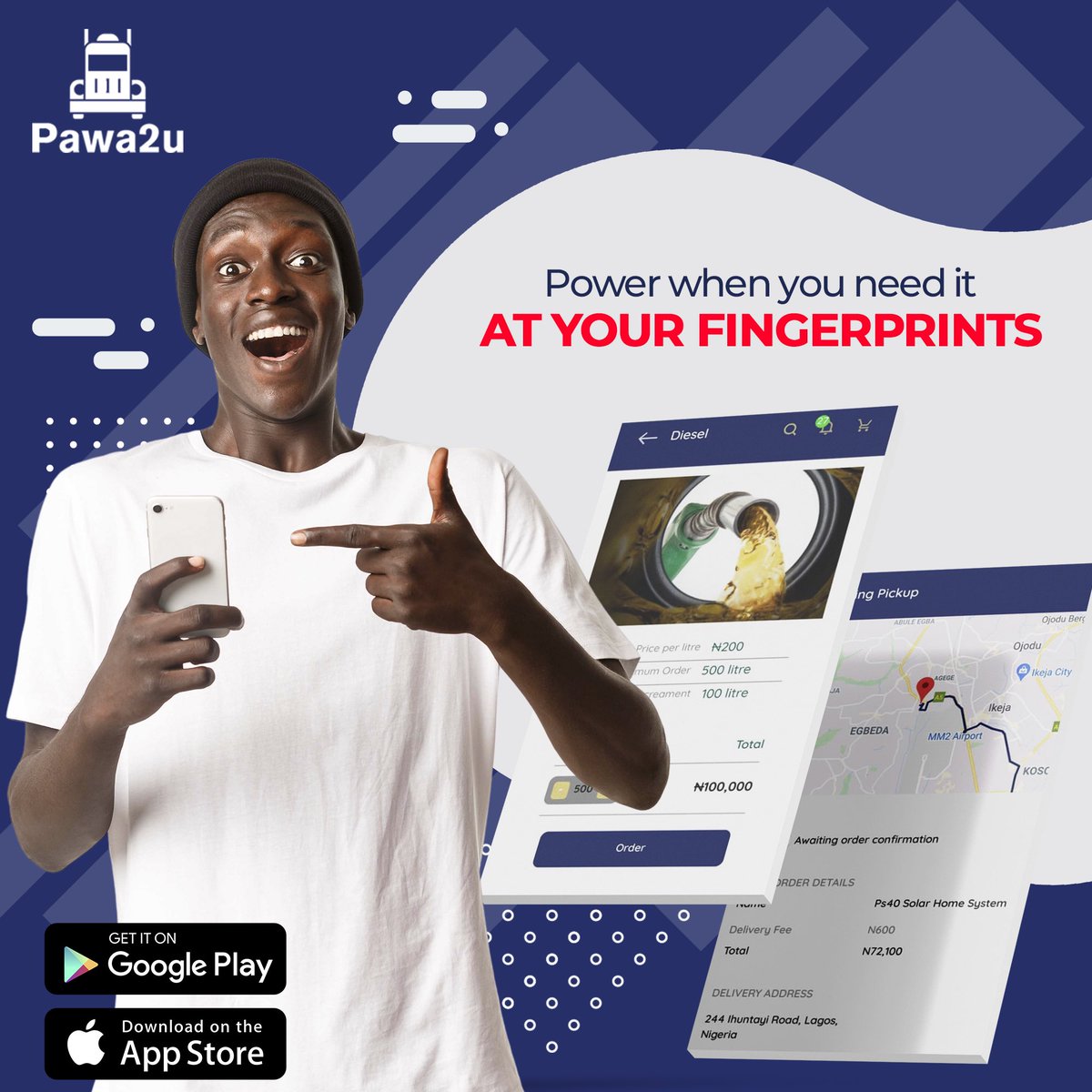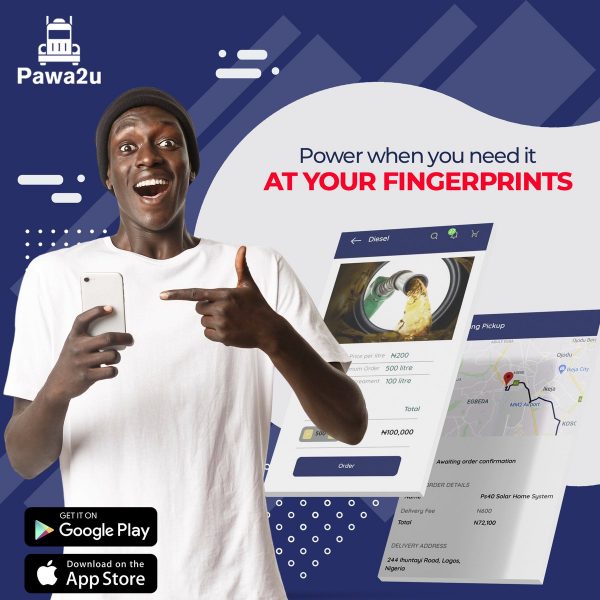The working individual in today’s world is often starved of time. Tight work schedules and long commutes eat into their day, leaving them with little room to deal with regular chores. Sometimes, they can’t even refill their gas cylinders at their local LPG vendor.
Read more about Business
If you’re caught up in this sort of situation, you would wish for a way to order your gas without leaving home. Perhaps you’d prefer an app that lets you choose from any number of vendors close by. That’s what Pawa2U does.
Pawa2U is a platform that makes power and energy products and services accessible to people all over Nigeria. On it, you can order cooking gas or diesel from a distributor, inverters and solar power systems from sustainable energy products suppliers, and generators from sellers.
“We are a meeting point for both customers and vendors to do business hassle-free,” says Moronfolu Fasinro, the company’s founder.
“Pawa2u is enabling customer convenience by bringing power products and services to their fingertips and also providing a place where they can be guaranteed of quality products and competitive pricing because we understand the industry.”
Starting Out
Moronfolu—or Moyo as he’s fondly called –says the idea for Pawa2U was conceived at his family’s dining table in 2018. But it didn’t come alive until February 2021, when the Pawa2U Android app was released on the Google Play store. An iOS version went live the following month.
In tackling the access problem for power services distribution in Nigeria, Moyo leverages decades of experience in the manufacturing and finance industries. He gained that experience on two continents—first in managerial roles in the United States’ automotive industry, and then in executive positions with major commercial banks in Nigeria.
Moyo says the process of building Pawa2U has been “very enlightening.” He explains that it’s already undergone multiple iterations, all aimed at meeting the needs of customers and vendors on the platform. He insists that whatever obstacles he’s faced so far are part of a learning curve.
“We don’t look at the process as a challenge but as progress towards achieving our goal: solving problems.”
Sign up to the Connect Nigeria daily newsletter
How Pawa2U Works
The Pawa2U app is fairly easy to use. A customer who wants to buy diesel or cooking gas can search the app for vendors closest to them. A vendor sees and accepts the order from the buyer. Next, the customer receives a confirmation and can begin tracking the order via a GPS locator on the platform.
After delivery, the customer may either confirm delivery or make a complaint about it on their app.
Things work a bit differently for generators, inverters, and solar power. In these cases, buyers select a product from the options available on the app, place an order, and receive confirmation. They can track the delivery process from their app as well.
Purchases can be made at any time of the day, and Turn Around Time (TAT) is typically specified beforehand. In Moyo’s words, the system “combines the best of two worlds, and is similar to the Uber request process.”
The company recognizes the risk of having problematic sellers on its platform; so it only works with vendors that it has vetted. However, vendor signup is easy. It can be done on the Pawa2U vendor app (which differs from the app used by buyers). This app is also available for download on the Google Play and Apple App stores.
Goals For The Near Future
Pawa2U has taken off. But there’s still plenty of ground for it to cover.
Its generators, inverters, and solar power systems are deliverable across Nigeria. However, the diesel and cooking gas vending service is currently restricted to Lagos. Moyo hopes to extend these to every state of the country by the last quarter of 2021.
“Another goal for Q4 2021 is to provide a loan option on the platform where customers can request for credit to purchase products,” he says. “Product insurance options would also be provided.”
Moyo wants Pawa2U to become the standard for sustainable energy provision in Nigeria. He’s doing this by making the company an efficient problem solver. It’s what he believes other Nigerian entrepreneurs should aim for.
Finally, as part of the iterations already happening, bills payment (electricity, cable tv, airtime and data, internet) will be added by the end of April 2021.
Got a suggestion? Contact us: [email protected]


